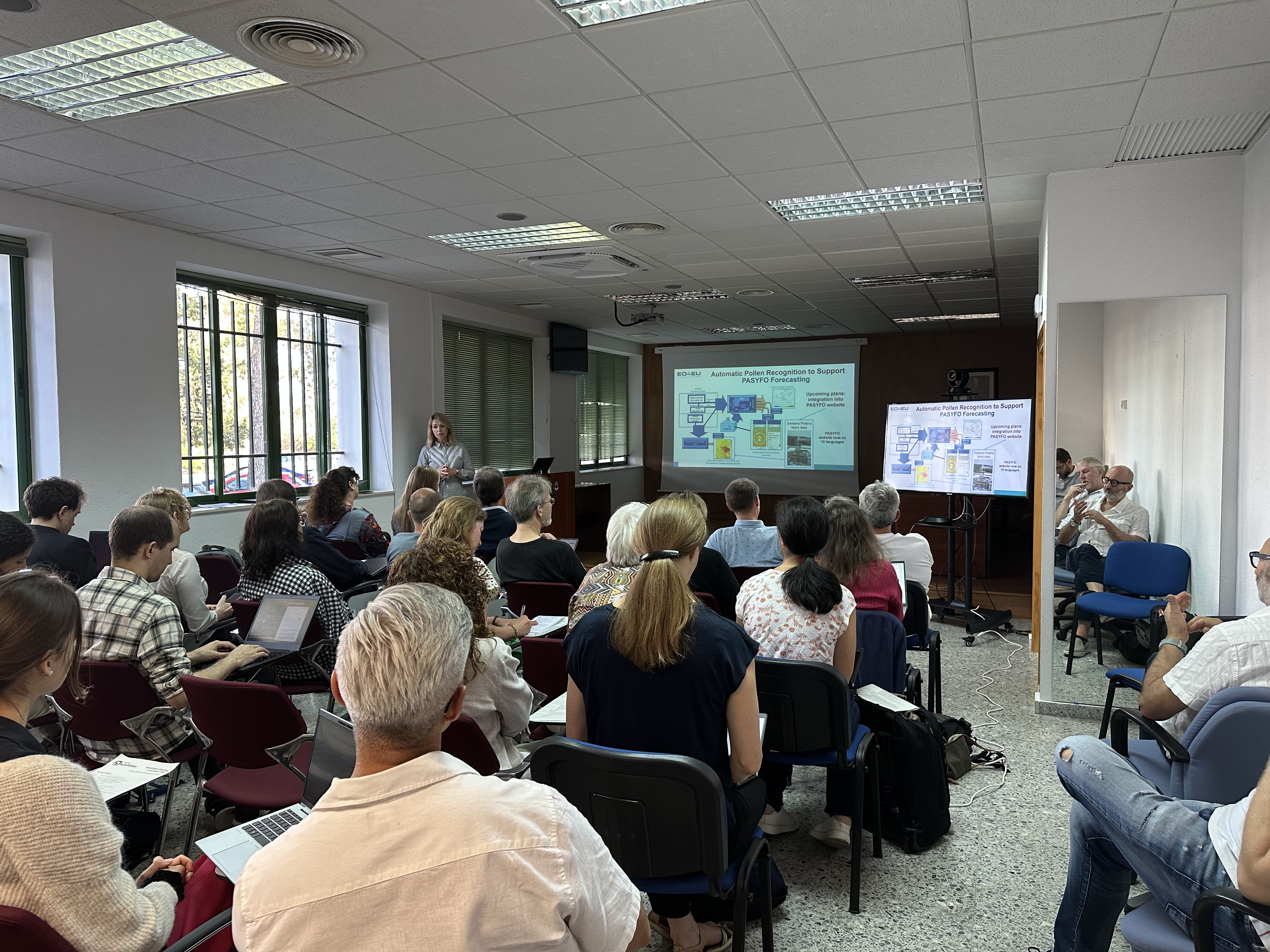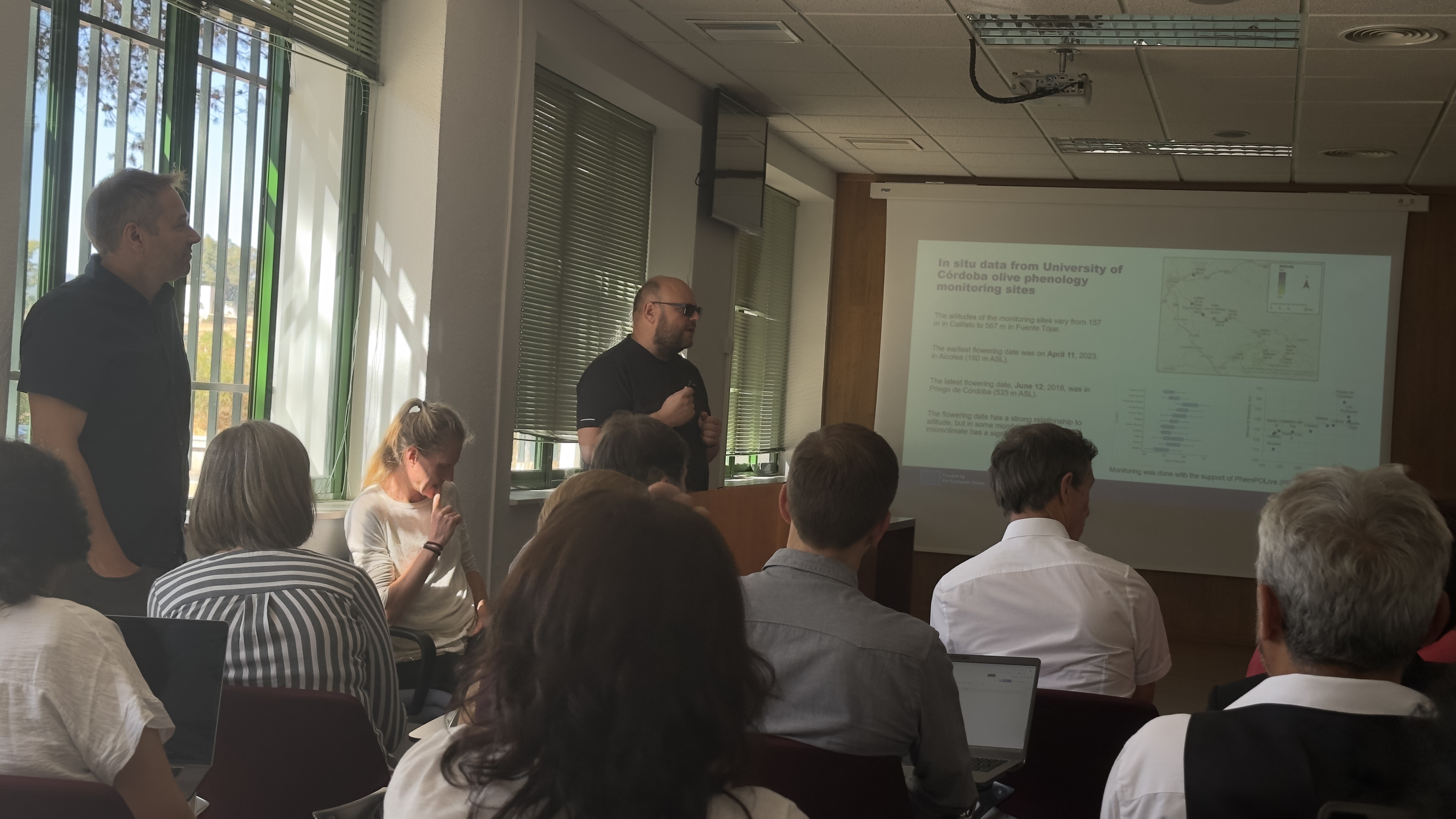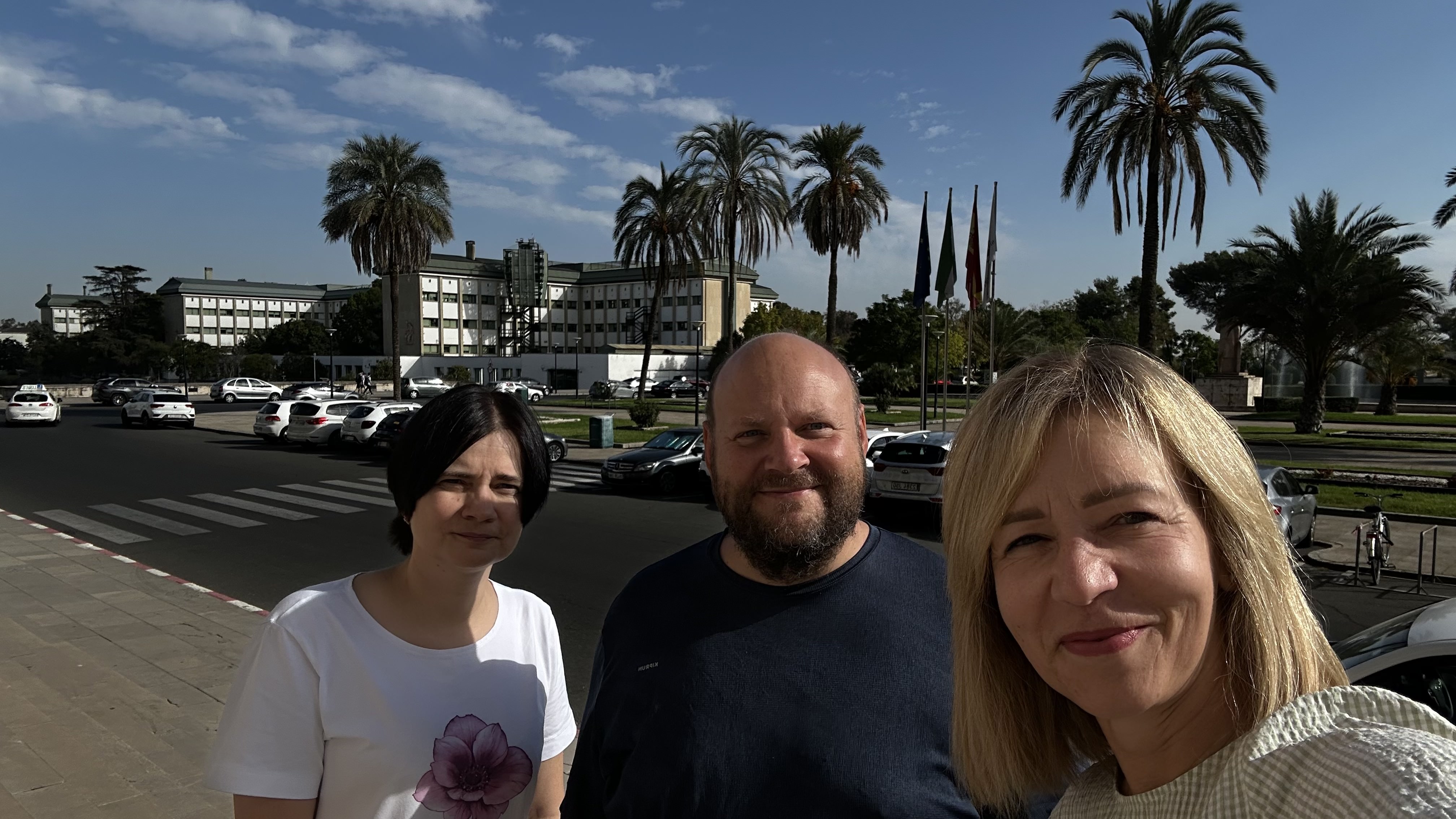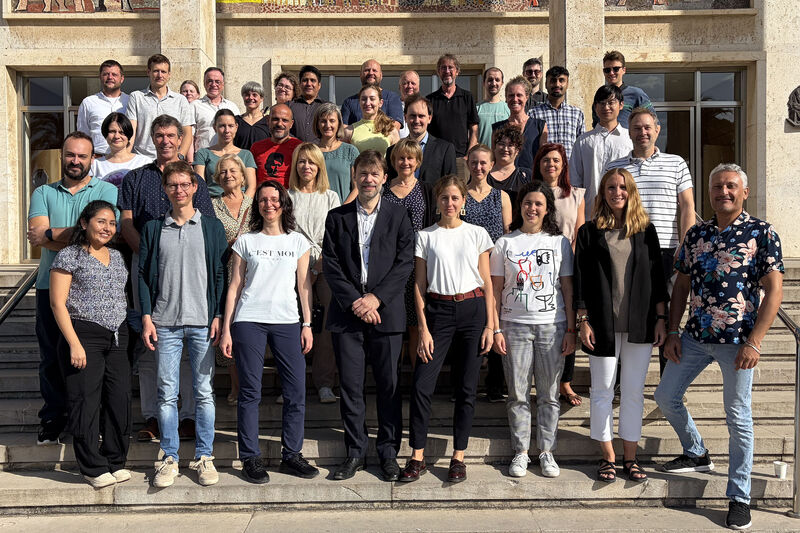From October 6 to 10, the University of Córdoba (Spain) hosted several international events to discuss automatic bioaerosol particle detection and the capabilities of current market technologies. Leading scientists in this field from various European countries attended the event. Vilnius University was represented by Prof. Dr. Ingrida Šaulienė, Prof. Dr. Edvinas Stonevičius, and Doc. Laura Šukienė, all of whom actively participated in the week-long scientific discussions.
Currently, airborne pollen and microscopic fungal spores are identified manually in most countries around the world. Specialists collect air samples and examine them under a microscope in laboratories. This process is time-consuming, so new technological solutions are needed to speed up bioaerosol identification from a public health perspective. The goal is to obtain information about airborne particles of biological origin within a few hours. The HORIZON project SYLVA, carried out by Vilnius University Šiauliai Academy employees, addresses pollen identification issues, beginning with creating and improving identification algorithms and ending with developing new technologies. The project has many partners from different countries, with Vilnius University leading some of the working groups. This leadership and cooperation has led to significant results, enabling the identification of airborne pollen in near real time.
The use of environmental data is incorporating automatic bioaerosol particle recognition more widely. The HORIZON project EO4EU, conducted by Lithuanian aerobiologists, combines Earth observation data with ground-based bioaerosol identification technologies. Residents of Lithuania and Europe can both take advantage of the expanded PASYFO — the Personalized Allergy Symptom Prediction Platform. Prepare for the allergenic pollen season in advance by trying the PASYFO app. If you are traveling in Europe, you will always have a personalized allergy symptom forecast at your fingertips.




